Cats have an uncanny ability to act like everything is fine—even when it’s not. They’re masters of disguise, and unlike dogs, who will dramatically whimper at the slightest discomfort, cats tend to keep their suffering under wraps.
I learned this firsthand with my cat, Oliver. One day, he was his usual independent self—napping in sunbeams, ignoring my existence, and occasionally knocking things off the counter just for fun. The next day, he was hiding under the bed, refusing food, and glaring at me like I’d personally offended him. My gut told me something was wrong, and sure enough, a trip to the vet revealed he had a mild infection.
As cat parents, our job is to notice the small changes—the ones that indicate something might be off before it turns into a major health concern. So, how do you know when your cat isn’t feeling well? Here’s a guide to help you decode their signals and ensure they stay happy, healthy, and full of sass.
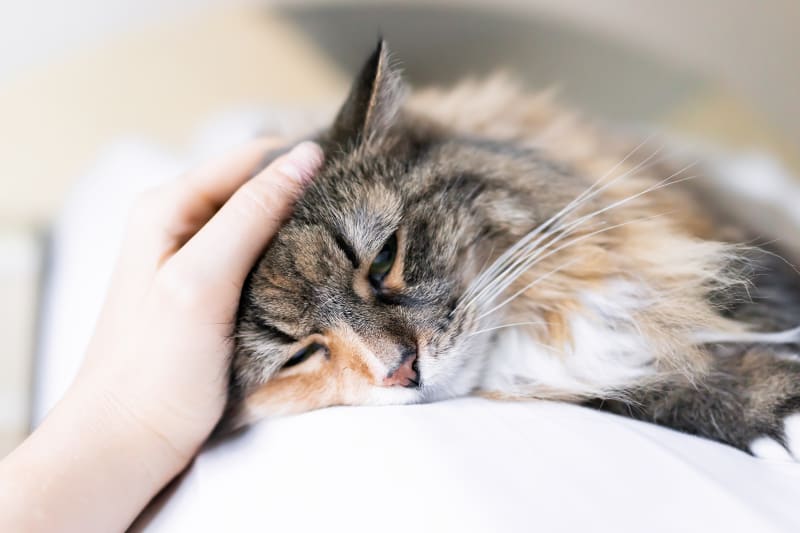
1. Behavioral Changes: Is Your Cat Acting Different?
Cats are creatures of habit. They love their routines—waking you up at ungodly hours for food, napping in their favorite spots, and demanding attention only when it suits them. So, when your cat’s behavior shifts, it’s worth paying attention.
🚩 Signs to Watch For:
✔ Hiding More Than Usual – If your normally social cat suddenly becomes a recluse, preferring to stay under the bed or in a closet, it could indicate pain or illness.
✔ Unusual Aggression or Irritability – A cat that suddenly hisses, swats, or avoids interaction might be feeling unwell.
✔ Excessive Vocalization (or Silence) – Some cats meow more when in pain, while others become eerily quiet.
💡 Oliver’s Case: He normally greeted me with a judgmental stare from the couch but started retreating to a hidden corner. It was a red flag that something wasn’t right.

2. Eating and Drinking Habits: The Appetite Test
If there’s one thing cats are consistent about, it’s their love (or strong opinions) about food. A sudden change in eating or drinking habits is often one of the earliest indicators of illness.
🚩 What to Monitor:
✔ Refusal to Eat – A cat that suddenly stops eating, even when presented with their favorite treat, might be feeling sick.
✔ Increased Thirst or Lack of Interest in Water – Excessive drinking can be a sign of diabetes or kidney disease, while dehydration can indicate other underlying issues.
✔ Vomiting or Frequent Hairballs – Occasional hairballs are normal, but frequent vomiting is not.
💡 Pro Tip: If your cat skips more than one or two meals, it’s time to consult a vet—especially if they’re also showing other symptoms.
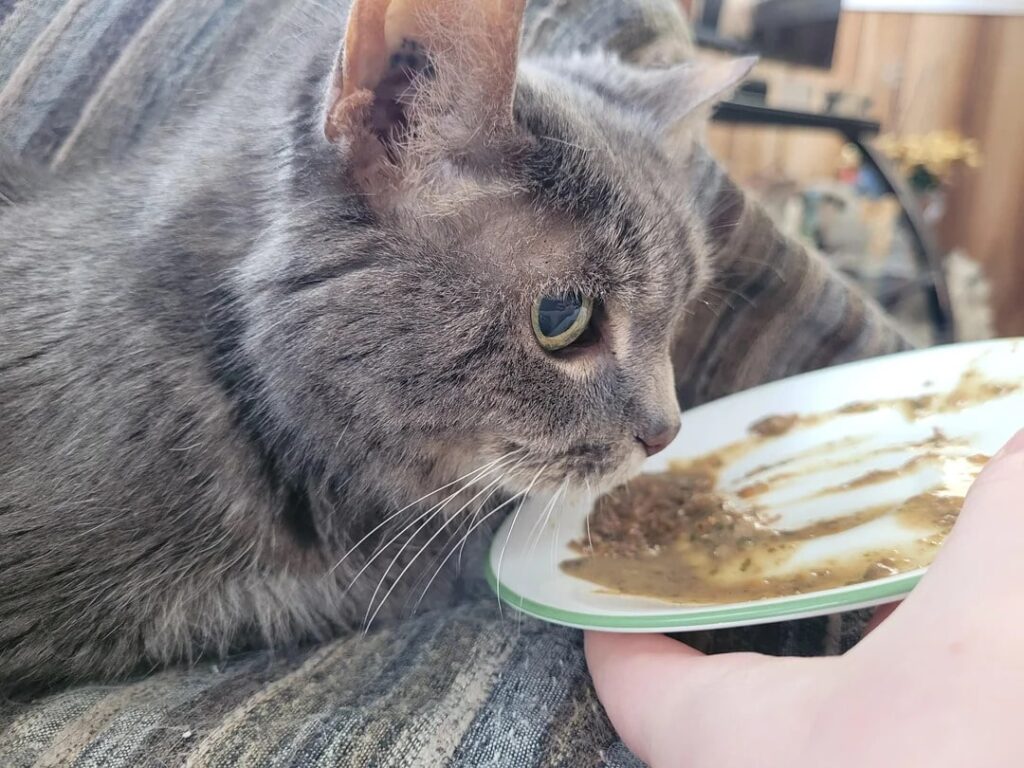
3. Physical Symptoms: What Does Your Cat’s Body Tell You?
Cats won’t whimper when they’re in pain, so physical signs can be crucial in detecting illness.
🚩 Things to Check:
✔ Limping or Difficulty Jumping – Arthritis or injuries can make movement painful.
✔ Grooming Changes – Cats that over-groom (licking a particular spot obsessively) might have skin irritation, while those that stop grooming might be in pain.
✔ Breathing Issues – Heavy breathing, wheezing, or panting are red flags.
✔ Changes in Coat Condition – A dull or unkempt coat can signal illness or malnutrition.
💡 Oliver’s Case: His fur, which was usually sleek and shiny, became rough and dull within a few days—another sign that led me to take him to the vet.
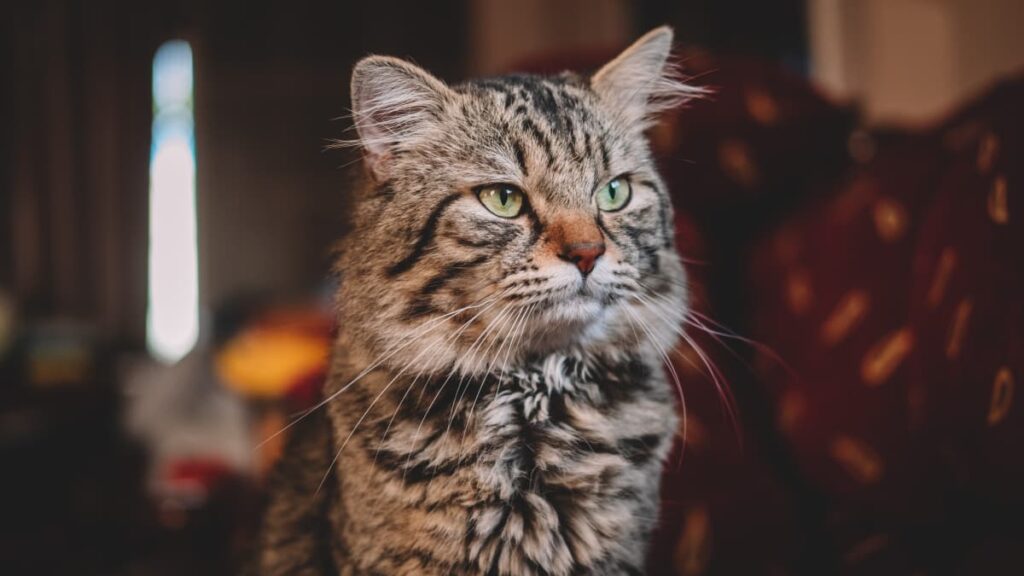
4. Litter Box Behavior: More Than Just a Chore
Scoop duty isn’t fun, but your cat’s litter box habits can tell you a lot about their health.
🚩 Red Flags:
✔ Straining to Urinate or Defecate – Can be a sign of urinary tract infections (UTIs), kidney problems, or constipation.
✔ Blood in Urine or Stool – Always a reason for an immediate vet visit.
✔ Frequent Litter Box Trips with Little Output – Could indicate bladder issues.
✔ Avoiding the Litter Box Entirely – Might be a behavioral issue, but also could indicate pain when urinating or defecating.
💡 Pro Tip: If your male cat is straining but not producing urine, it could be a life-threatening urinary blockage. Seek emergency vet care immediately.
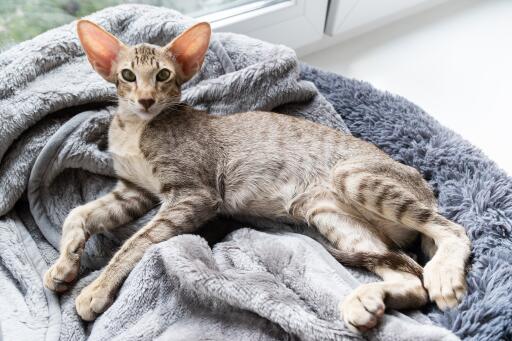
5. Eye, Ear, and Nose Check: The Small Details Matter
Your cat’s eyes, ears, and nose can provide subtle clues about their health.
🚩 What to Look For:
✔ Watery, Red, or Cloudy Eyes – Could indicate infections, allergies, or injury.
✔ Discharge or Foul Odor from the Ears – Might be a sign of ear infections or mites.
✔ Dry, Cracked, or Overly Wet Nose – While nose moisture varies, excessive mucus or constant dryness can signal health problems.
💡 Oliver’s Case: I noticed he had one watery eye and kept blinking more than usual—turned out he had a mild eye infection!

6. Weight Changes: The Silent Indicator
Even small fluctuations in weight can be a sign of an underlying issue.
🚩 Be Concerned If:
✔ Sudden Weight Loss – Even if they’re eating normally, it could indicate hyperthyroidism, diabetes, or cancer.
✔ Unexplained Weight Gain or Bloating – Could mean digestive issues or organ dysfunction.
💡 Pro Tip: If your cat has lost more than 10% of their body weight without dietary changes, consult your vet immediately.

When to See the Vet: Don’t Wait Too Long
If your cat is showing any of these warning signs, it’s better to err on the side of caution. Early detection can mean a world of difference when it comes to treatment.
🚩 Vet Visit Checklist:
✔ Lethargy lasting more than 24 hours
✔ Persistent vomiting or diarrhea
✔ Labored breathing
✔ Severe weight loss
✔ Any sudden behavioral changes
💡 Trust Your Instincts: If you feel something is off, you’re probably right.
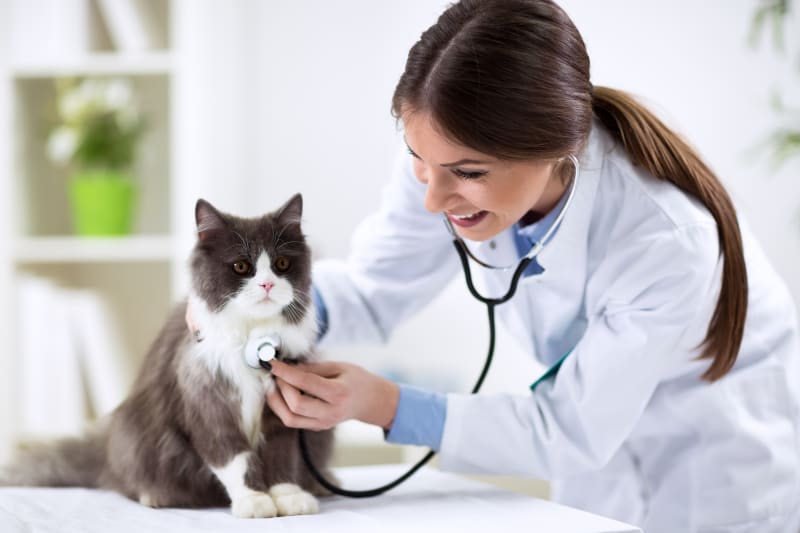
Final Thoughts: Be Your Cat’s Best Advocate
At the end of the day, you know your cat best. They might not be able to tell you when they’re sick, but by paying attention to their behavior, appetite, physical signs, and litter box habits, you can catch potential health issues early.
Oliver bounced back after a round of antibiotics, but the experience taught me something valuable—never ignore small changes. Your cat depends on you to notice when something isn’t right, and by acting quickly, you can keep them healthy, happy, and ready for their next mischief-filled adventure.🐱 Has your cat ever acted strangely before getting sick? Share your stories in the comments below!

